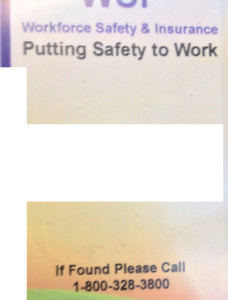Quick, who said “A mandate on households [to buy health insurance] certainly would force those with adequate means to obtain insurance protection.”?
How about :”If a young man wrecks his Porsche and has not had the foresight to obtain insurance, we may commiserate, but society feels no obligation to repair his car. But health care is different. If a man is struck down by a heart attack in the street, Americans will care for him whether or not he has insurance.”
See below for the answer…
For the gazillionth (okay, only 7,386th) House GOP members recently voted to repeal or defund Obamacare. That principled effort has consumed 15% of the House of Representatives’ floor time – one out of every seven hours has been devoted to this Quixotic effort.
Back in the day, there were calls to “repeal and replace”; those have disappeared of late, replaced by…nothing. Rather, the thinking seems to be “it’s not our job to fix this mess.”
Because there’s no question our health care system is a mess – expensive and horribly inefficient, while delivering outcomes that are far worse than embarrassing. And somehow the current system does not need oversight/repair/re-configuration?
Here are a few things to consider when pondering solutions to the current health care mess.
1. Insurers won’t cover people with potentially expensive pre-existing conditions unless they are forced to. That’s just common sense, and responsible behavior.
2. Because insurers won’t cover high-risk individuals, we have “high-risk pools”. Unfortunately, these have always been and are now seriously underfunded.
3. If a) insurers won’t cover people with history of heart disease, diabetes, obesity, asthma, depression, or a few hundred other conditions, and b) there’s no other coverage, these people will not get insurance coverage. Unless they are super-wealthy, they won’t get care, either.
Some make the principled argument that this is not their problem, that the Federal Government’s role does not include anything involving the health of Americans. I respect that position, as long as it is consistent with their policy views on other matters. I would also note that it is at odds with most Americans who view Medicare – a Federal program – as sacrosanct.
Which gets us back to the original question, who wanted the mandate first?
The lede quote came from the Heritage Foundation; here’s what Heritage’s Stuart Butler said:
“[N]either the federal government nor any state requires all households to protect themselves from the potentially catastrophic costs of a serious accident or illness. Under the Heritage plan, there would be such a requirement…Society does feel a moral obligation to insure that its citizens do not suffer from the unavailability of health care. But on the other hand, each household has the obligation, to the extent it is able, to avoid placing demands on society by protecting itself…A mandate on households certainly would force those with adequate means to obtain insurance protection.”
BTW, Butler authored the Porsche quote as well…
A question.
Why is Obamacare now anathema to the very people who originated the idea?
Is it the policy, or the person who’s name is now attached to the very idea first advanced by conservatives?
Note: As always, happy to engage in spirited debate; if you want to posit a different argument, use citations of primary sources to back up your positions. I do, so you have to.



